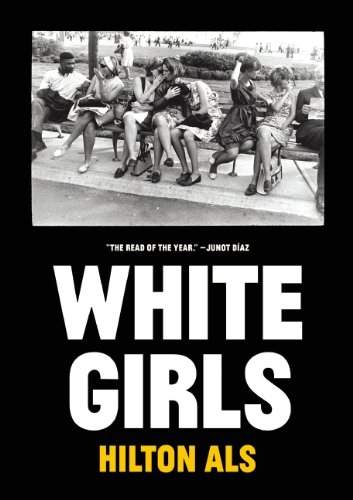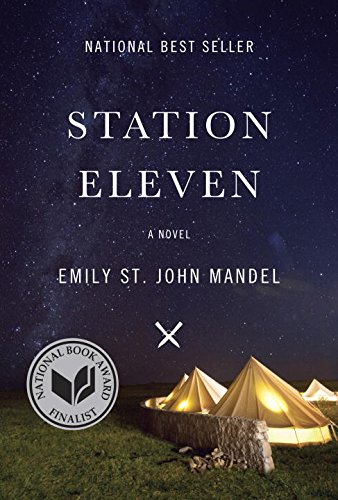Station Eleven was in many ways THE novel of 2014, showing up on most of the lists and being nominated for most of the prizes. It also managed to gain a pretty steady public following and great sales, which isn't always true of critically-acclaimed novels.
Much of early 2015 has been all about getting caught up on the previous year's books, especially now that I know which books are most likely to have a lasting impact, so I was really anxious to finally make time for Station Eleven, which, based on the premise alone, seemed like something I'd love. I have a natural bias for anything that takes place in Ontario or Michigan, so a post-apocalyptic novel about a Shakespearean theater troupe who travels the Great Lakes region was definitely for me.
A lot of intelligent book critics and fellow authors have complained about the over-abundance of post-apocalyptic stories lately; I guess I'm less sensitive to this because I can only recall one other post-apocalyptic novel that I've read recently (and it was great), but I understand the weariness with it as a trope because we've been so inundated with movies and TV shows on the same topic; I don't even watch them and I'm sick of them anyway. Many reviewers were quick to point out, however, how gracefully Emily St. John Mandel navigated this saturated terrain.
In a general sense, I agreed with that; I was impressed by the freshness of her ideas and the very unique plot devices she used to framed an otherwise worn-out trope. That said, I wasn't really impressed with the writing, which I did not expect. I found all of the dialogue to be very stilted and unnatural, almost performative maybe? I also struggled with the character development, which felt lacking for a few central figures, especially an accomplished actor and movie star, Arthur Leander, whose death at the beginning of the novel seems to spark the long series of events that leads to an almost empty Earth, 20 years later. He is the character we spend the most time with, but something about him felt utterly lacking.
The novel is very structured, with the events moving forwards and backwards constantly, and there are also narrative devices like letters and interviews thrown in; it comes across as very heavy, deliberately-constructed scaffolding used to prop everything else up, and it wasn't successful. I was irritated, for example, when one of our protagonists, Kirsten, was quoted as saying very profound, thematically-summarizing statements in her interviews, which, ostensibly, were supposed to be about her experience when the world ended. There was absolutely nothing clever or subtle about it, and I wondered about the effects of twenty years of violent, traumatic survival on her as a character. She showed so few signs of it and even when the reader was in her head, we got almost nothing from her, suggesting the death of everyone she knew at age eight didn't have much lasting effect...and yet she has the public demeanor of a very poetic, highly-educated woman.
I don't expect novels to be particularly "realist" and I don't mind heavy-handed structural devices, but the success has to be determined by the effect and the ease with which the authors yields the devices, and in this case there was just no grace or elegance to the writing.
I should mention, this is only something that struck me toward the end of the novel, because I devoured it. I genuinely enjoyed it and would recommend it, but I'm not sure if it deserves the universal acclaim that it's received up to this point.

















